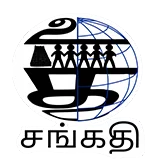
Rex Clementine in Rajkot
Often Virat Kohli’s on field antics doesn’t win him many friends outside India. As a result, Indian cricket is frowned upon by all and sundry. As a norm, most Sri Lankan fans, especially the young ones want India to lose wherever they play. There was this fan who came to RPS one day with this t-shirt. It read, ‘I support two teams. Sri Lanka and anyone playing India.’
Sometimes you tend to believe that the hatred towards India goes beyond cricket. Rajiv Gandhi’s invasion of Sri Lankan airspace to provide dhal and allegations of RAW funding and training the LTTE doesn’t go too well with people. But, let’s not forget that last year alone India provided Sri Lanka aid worth over US$ five billion when most of the western nations turned a blind eye. If not for that, the economic crisis would have been far worse. As for the LTTE, defeating them would have been not so easy without the help of Indian intelligence and military.
Coming back to cricket, India played a lead role in eliminating the veto power that Australia and England enjoyed at the ICC. By jointly hosting the 1987 World Cup between India and Pakistan the competition was taken away from England for the first time. It was a major breakthrough.
But cricket in India didn’t have the financial capacity to host a mega event like the World Cup. Neither did Pakistan. The government’s assistance was sought and with that assurance, the event became a success.
N.K.P. Salve was a powerful government Minister and it helped as he was guiding cricket from the front. There were other visionaries leaders like S.K. Wankhede from the north and M. Chinnaswamy from the south. Together they all challenged the founding members of the ICC. Then a new set of businessmen emerged who made India financially strong.
Jagmohan Dalmiya from Calcutta, I.S. Bindra from Punjab and Raj Singh Dungapur from Bombay were key figures in late 1980s and 1990s. Dalmiya was the main man among them having gone onto become the President of the ICC.
The norm was that the Indian board paid the national television station Dooradarshan for telecasting cricket. The ambitious Dalmiya made cricket a product that could be sold. He believed that cricket was a valuable brand and wanted television stations that were interested in taking the game to the homes of world’s second largest population to pay for it.
Soon big money started pouring in and gradually India went onto become the richest cricket board in the world. Then began their domination of world cricket. The arrival of N. Srinivasan changed cricket’s landscape significantly. The holder of a Masters degree in Chemical Engineering and boss of India Cements, Srinivasan was a leading figure in the corporate world before he became known in cricket circles.
Srinivasan’s rise in cricket wasn’t sudden. He worked his way up. In early 2000s, he was the Treasurer of the Indian Board. A former Sri Lanka captain who knew well how Srinivasan operated warned a group of reporters never to cross Srinivasan’s path if we ever met him. At that time we had no idea who this person was, but soon the world would get to know him.
Srini as he’s popularly known had an interesting theory. That was India contributed to cricket’s finance significantly and hence India needed to get bulk of the revenue. He knew pretty well that taking on the rest of the world all alone would be tough. So he created this scenario where it was told that since England and Australia were the two nations that contributed the largest revenue next to India, their portions of profits from ICC events needed to be significantly higher than the rest of the world. It was a deal the likes of Giles Clarke, the English boss and Wally Edwards the Aussie chief couldn’t resist. Then the concept of the Big Three was born.
Not many agree with Srinivasan’s methods or theories. But the interesting point is that he was able to get the rest of the cricketing world at his feet. Whoever who disagreed paid a price. Haroon Lorgat for example, the South African who went onto become the CEO of the ICC. This reminded you the ex-captain’s words. ‘Never cross Srinivasan’s path’. 
The point that needs to be reiterated here is that when Australia and England are playing ball with India, there’s no point that a board like Sri Lanka takes them head on. There’s going to be only one winner.
BCCI has graciously supported Sri Lanka whenever the local board had felt the pinch. India had been quick to come over to Colombo for many a bilateral series.
Along with Srinivasan, there was another individual who changed Indian cricket fortunes. He was the US educated Lalit Modi. The IPL was his brainchild and it soon became a hit. Not only have the players earned handsomely, BCCI has gone onto become such a rich board that it has several schemes helping past player even after their death supporting their families with monthly allowances.
Some may say that Modi and Srinivasan have skeletons in their cupboards. Of course they have. But the reality is that we aren’t living in an ideal world. The bottom line is due to their visionary thinking Indian cricket has benefited. We may disagree with their means but every man who built a sporting empire broke a few rules be it Sepp Blatter or Dr. Ali Bacher.

